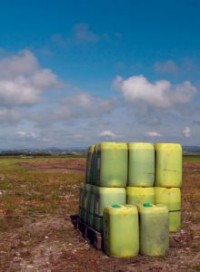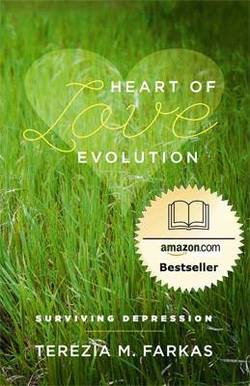1 Comment
Terezia Farkas. CNN. Huff Post. International Bestselling Author. Writes about dealing with depression.
Okay everyone, I am Tired!! Being depressed and attending a full day training course is really hard work. It takes a lot out of a person like me. But I'm also loving it! Not only because I'm learning lots but the people I'm meeting are wonderful! I can't tell you too much because of privacy issues but trust me when I tell you they are inspirational. The CDRIN training is led by Dr. Barbara Everett who so far has made the long hours fly by unnoticed with her graceful and humour filled teaching. CDRIN was launched in 2013 and this training is considered to be the first of its kind. CDRIN has five research hubs across Canada that do collaborative research projects involving researchers, clinicians, persons with lived experience, their carers and other stakeholders. The goal is to equip persons with lived experience and carers (loved ones of depressed people) to learn the basics of research and to be able to work in research teams. CONTINUE READING....  Terezia Farkas. International Bestselling Author. Columnist. Writes about dealing with depression. Herbicide use is being linked to depression among farmers and farmworkers by numerous university research studies. Farmers using herbicide are 2.5 times more likely to develop depression than farmers who don’t use herbicide. While researchers don’t want to say that the various chemicals in weedkillers actually cause depression, ongoing studies seem to suggest that the sheer amount of herbicide being used is not healthy. The use of pesticides has already been linked to Parkinson’s disease in farmers. Insecticides, particularly organophosphates, are toxic to nerve cells. New studies are now focusing on the use of herbicides and their effects on farmers. It’s believed that herbicides affect the mental health of farmers, possibly even their neural networks. In the United States, herbicide use makes up 65% of all agricultural pesticide use. The genetically engineered crops of Monsanto and other companies are designed to withstand the effects of herbicides. Large doses of these chemicals are often doused over these crops. Breathing in these harmful substances are farmers. In 2013 a study was conducted by The American Journal of Epidemiology. For the study, researchers surveyed 567 farmers from France, questioning them on the frequency of their use of fungicides, insecticides, and herbicides, to determine how pesticide exposures were linked to the risk of developing clinical depression. The findings revealed that among 567 farmers, 83 self-reported treatment or hospitalization for depression — nearly 15 percent. After adjusting for age and health factors, the researchers found that farmers who use herbicides were more than twice as likely to have been treated for depression. Lead researchers and associate professor at the Harvard School of Public Health, Marc Weisskopf, Ph.D., said while the results are unclear, they “suggest we should not be ignoring herbicides just because they’re targeting plants.” Terezia Farkas. International Bestselling Author, Huffington Post/ CNN contributor, columnist of Depression Help. Focus is mental health. Her bestseller Heart of Love Evolution – Surviving Depression is available on Amazon. Website: www.tereziafarkas.com Follow on Twitter.  Terezia Farkas. CNN. HuffPost. International Best-selling Author. Writes about dealing with depression. I’m sharing part of this article from HealthlineNews (www.healthline.com). It’s interesting that there may be multiple types of depression. William J. Walsh, President of the Walsh Research Institute, is the researcher who identified these 5 types of depression using urine and blood tests. Most psychiatrists believe that depression is caused by low levels of serotonin. Yet three of these forms of depression aren’t caused by fluctuating serotonin levels. CONTINUE READING...... |

RECENT POSTS
All
BLOG ARCHIVES
February 2018
Terezia Farkas on Huffington Post
|

